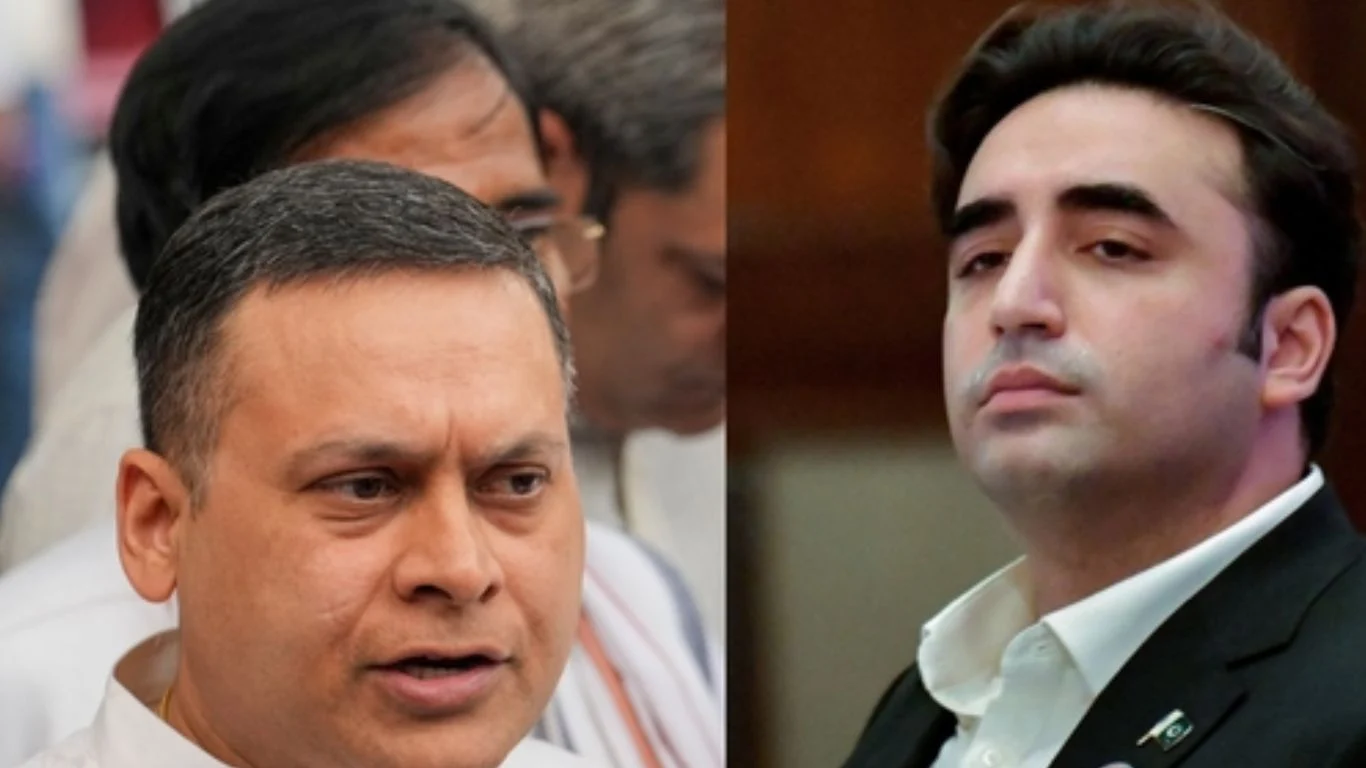
In the wake of the devastating terror attack in Jammu and Kashmir’s Pahalgam that claimed 26 lives—25 of whom were Indian citizens—the political tensions between India and Pakistan have sharply escalated, drawing pointed reactions from Indian leaders. One such reaction came from Bharatiya Janata Party (BJP) IT Cell chief Amit Malviya, who took a direct swipe at Pakistan People’s Party (PPP) president Bilawal Bhutto Zardari following the latter’s public acknowledgment of Pakistan’s historical ties with extremist organizations. Malviya shared a screenshot of a Sky News article featuring Bhutto’s comments, highlighting the moment as a significant admission and responding with the words, “Fear is… palpable,” suggesting that Pakistan’s defensive posture stems from mounting international pressure and internal instability.
Bhutto, during his conversation with Sky News anchor Yalda Hakim, had said, “As far as what the defence minister said, I don’t think it is a secret that Pakistan has a past… As a result, we have suffered, Pakistan has suffered. We have gone through wave after wave of extremism. But as a result of what we suffered, we also learned our lessons. We have gone through internal reforms to address this problem.” His rare candid admission was interpreted by many in India as a reluctant acknowledgment of the long-standing Indian accusation that Pakistan has harbored, supported, or turned a blind eye to terrorist outfits operating on its soil.
Malviya’s reaction was both scathing and strategic, using Bhutto’s words as proof of what India has long maintained on global platforms—that Pakistan’s deep entanglement with terrorism is a matter of historical record rather than mere allegation. The timing of this exchange is particularly significant, coming just days after the gruesome Pahalgam attack, which has intensified the Indian public’s anger and reignited calls for accountability and stronger cross-border counter-terrorism measures. India’s Ministry of External Affairs has been vocal about Pakistan’s need to dismantle terror infrastructure, and Bhutto’s comments, even if framed as part of a narrative of reform, seem to lend weight to that argument. While Bhutto attempted to shift the focus toward Pakistan’s internal struggle against extremism and the lessons supposedly learned, critics in India questioned the sincerity and completeness of such reforms, pointing out that terror-related activities continue to thrive in parts of Pakistan, including regions under the influence of the military and intelligence services.
Malviya’s response, though brief, encapsulated the sentiment prevalent among the Indian political establishment: that Pakistan’s so-called transformation is cosmetic at best, and that any acknowledgment of past associations with extremism is not enough without concrete, verifiable action on the ground. Bhutto’s remarks, while garnering attention internationally for their unusual candor, have also opened a political debate within Pakistan, where hardline factions view any concession as weakness, while moderates argue for greater transparency and reform. For India, however, the issue is not one of semantics or self-reflection by Pakistani leaders—it is a matter of national security and justice for those killed in repeated acts of cross-border terrorism. Bilawal Bhutto, representing a political dynasty in Pakistan, has often tried to portray himself as a modern, internationally minded leader who wants to steer his country toward progressive values.
However, his statements on extremism now appear to be double-edged—on one hand trying to reassure the global community of Pakistan’s efforts to contain radicalism, while on the other inadvertently validating India’s long-standing concerns. Indian policymakers and commentators argue that Bhutto’s framing of Pakistan as a ‘victim’ of extremism tends to gloss over the fact that many of the groups responsible for violence in India have received support, shelter, or ideological space in Pakistan for decades. The acknowledgment of “waves of extremism” by Bhutto was likely meant to convey Pakistan’s internal struggles, but to many Indian analysts and politicians, it also confirmed the depth of the state’s prior entanglement with such groups.
This latest exchange has also drawn attention in diplomatic circles, as it comes at a time when Pakistan is under growing scrutiny from international bodies like the Financial Action Task Force (FATF), which monitors countries for financing terrorism and failing to prosecute offenders. Any admission by a top Pakistani politician about historical ties with terrorism may have ripple effects in diplomatic evaluations. In India, the BJP has seized upon Bhutto’s remarks to further its own narrative on Pakistan’s role in fostering instability in the region. Amit Malviya, known for his sharp and sometimes incendiary digital campaigns, positioned Bhutto’s interview not just as a revelation, but as a strategic moment that validates India’s foreign policy posture and its demand for global pressure on Islamabad. His phrase—“Fear is… palpable”—was likely chosen to convey that Pakistan’s leadership is under duress, forced to reckon with the cumulative consequences of its past actions as pressure mounts from India and the international community alike.
The broader context of Bhutto’s interview and Malviya’s response also reflects the long-standing pattern of India-Pakistan relations, where gestures of admission or attempts at reform from Pakistan are often met with skepticism in India, given the entrenched distrust rooted in decades of unresolved conflicts, especially over Jammu and Kashmir. At the same time, the violence in Pahalgam serves as a grim reminder that beyond diplomatic rhetoric, the human cost of terrorism remains tragically real and immediate. India’s internal security apparatus is now on heightened alert, and the political climate has become increasingly hawkish. In this atmosphere, any comments from Pakistani leaders—even those framed as reformist or conciliatory—are bound to be viewed through a lens of suspicion. As calls for justice grow louder in India, Bhutto’s remarks, and Malviya’s biting response, have added a new dimension to the public discourse, turning a brief media interview into a flashpoint in the already tense narrative that surrounds India-Pakistan relations in the aftermath of another brutal terrorist strike.

















